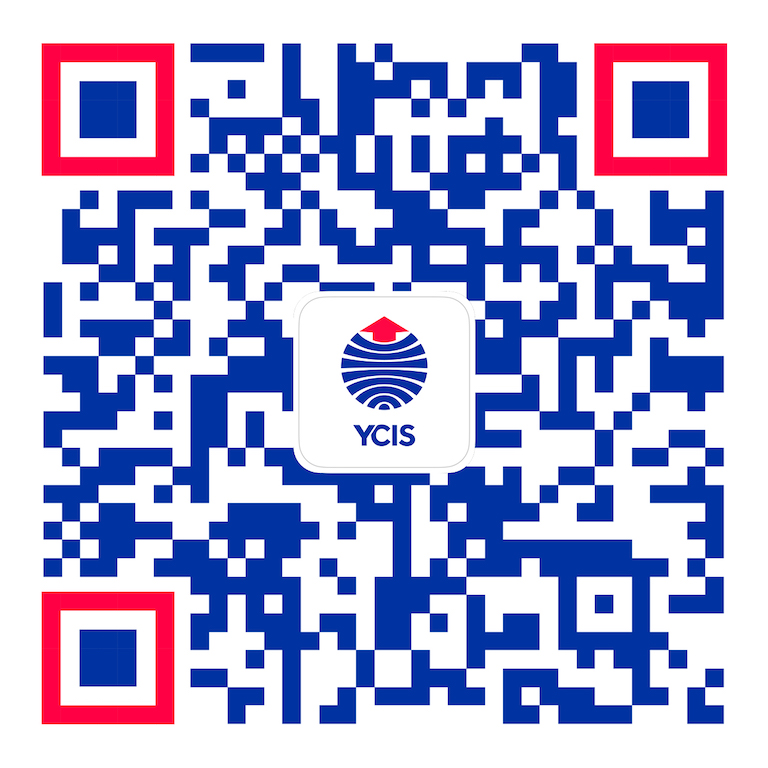Go Back
News
School News
Global Education at YCIS Leads to IB Diploma Programme Success
School News
31 Jul, 2017
18 : 00
YCIS Class 2017 has achieved brilliant IB results. Two students were awarded the maximum 45 points and 22 students gained 40 points or above. YCIS’s average score was 35, which is well above this year’s world average of 29.95 points.
Top scorers, Ying Nga-fei (Ivy) and Chan Wai-ka (Daisy) here gave their reflections and advice on how to secure places in top world universities.
The IB Diploma course is a complex two-year programme – what were the most rewarding aspects of the course?
Daisy: “The most intriguing facet of IB was Theory of Knowledge (TOK). We all hated it at first. We didn’t understand the importance of asking philosophical questions like ‘how do we know we exist’ or probing into the ‘ways of knowing’ and ‘areas of knowledge’. But looking back, TOK has transformed my perspective of the world, shaping me into an inquisitive learner. Exploring the construction of knowledge claims and questioning the authority has refined my critical thinking skills.”
Ivy: “The most rewarding aspects are CAS (Creativity, Activity, Service) and EE (Extended Essay), which are also what make the IB programme stands out from the rest. CAS gave me an opportunity to explore out of my comfort zone, to try activities that I never thought about doing, such as boxing, teaching ADHD (Attention-deficit/hyperactivity disorder) children. It also took us to Cambodia for community service, where I would probably never visit on my own. EE was also a great exercise for us to have a taste of what it is like to write university level papers and conduct research on our own.”
Did you have a defined career path for a long time or have you been influenced by others recently?
Daisy: “I have been determined to become a doctor since I was very young. Having an oncologist father meant that I grew up seeing the demands of medicine, and was mesmerised by the combined aspects of medicine as both a science and an art. I was enlightened by the art of caring and comforting patients when shadowing hematologists and oncologists. The hospital attachment confirmed my interest in the perfect coalition of humanistic qualities and medical sciences, further encouraging me to pursue a medical career.”
Ivy had a somewhat defined path-centred around business before the start of IGCSE, but she did move around a little within the large business field. She thought about accounting, investment banking, consulting, hotel management and all sorts of potential careers. She tried different activities to see which one she enjoyed the most and it turned out that the hotel and tourism field came top.
What advice would you recommend to students looking to start the IB Diploma Programme?
Ivy: “I would like to recommend students to make a clear schedule that they would follow, so that they are on track with deadlines and assignments as well as university applications. It is important to use their time wisely, especially using the summer time to finish up IAs (Internal Assessment) and EE, so that they won’t be overwhelmed when it comes to their second year in the diploma programme. IB Diploma is not as tough as some people make it seems like, but it does get you very busy when it overlaps with CAS, EE, TOK, and university application, especially for those who are applying to the US (since there is also SAT), so make sure they develop good time management skills.”
Daisy: “Make the right subject selection. Avoid choosing two HL (Higher Level) first language subjects. Update your CAS every week. Arrange meetings with your EE supervisor regularly, as their advice is really important to help you write a good thesis! Always ask for help from your peers, seniors or teachers if you have any questions! Try to maintain a healthy work-life balance; it will help relieve stress!”
What was the greatest challenge along the two-year programme?
Ivy: “The greatest challenge would be balancing school grades with university application and tests (such as the SAT and TOEFL). Especially in the second year, for US applicants, there are a lot of application essays to write, while the mock exams are also coming up. It is difficult to find a balance in between.” Daisy: “(The greatest challenge is) to complete the extended essay. I did Chinese literary analysis on the novel《離心帶》written by the contemporary Hong Kong author 韓麗珠(Hon Lai Chu), exploring the concept of ‘alienation’. Due to its magical-realistic genre, and the fact that very few have researched on Hon’s work, I took an extortionate amount of time in analysing the book.”
How helpful was the School’s University Guidance Office (UGO)?
Ivy: “The UGO is very important in the whole application process. They are in charge of sending your grades, going through your personal statements, and essays. It also depends on your communication with your counsellor. If you visit the UGO often and show them your progress, they can be very helpful in helping you perfect your application essays and fill out forms, and providing application tips in general.”
Daisy: “The UGO provided superb counselling service! My counsellor gave me valuable advice in writing personal statements and interviews with medical schools. She gave me clear instructions to university application such as choosing a safety school to maximise my options.”










